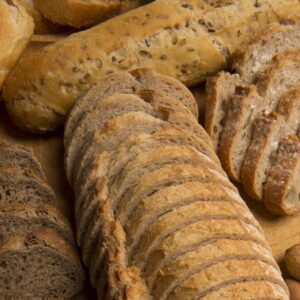
When you first leave home, it can be easy to make unhealthy food choices and gain weight. We help you avoid this trap.
Starting at varsity, taking a new job away from home or going overseas on an OE are life-changing experiences, helping us grow as individuals. Sadly, for some though, that growth can be far too visible from the outside. In the US it is known as 'Freshman Fifteen'; the number of pounds thought to be gained during the first year of varsity. Originally confined to anecdote, Cornell University have now made it official, publishing research showing a four-pound increase (about 1.74kg) in their new students during the first 12-week semester. This is up to 11 times the average weight gain of similarly-aged teenagers. So what is it about leaving home that appears to fuel external as well as internal growth?
Flying the nest spells freedom. Suddenly any parental control over eating habits disappears. Whether a university food-filled cafeteria, a work canteen, or better still, a foreign city full of exciting new eating experiences or, at least, familiar fast food outlets, the choice is yours. Food can be eaten wherever, whenever, and whatever in terms of both type and amount. Hot chips and ice cream can be enjoyed at every meal. This, together with cheap alcohol and an abundance of snacking opportunities to fuel the midnight assignment writing, has contributed to many a student's downfall.
For those not interested in activity and exercise, the ability to become a couch potato also increases in the absence of parental 'encouragement'. While some flourish away from home, others will find what is probably the biggest life change so far unsettling, stressful and lonely, turning to food for comfort in an unfamiliar environment.
Tummy trimming tips for students
-
Students tend to be time-rich, even if money-poor. If cooking skills haven't been learned at home, this is the time to acquire them. Cooking together with flatmates is fun, cost-efficient, and can ensure better-balanced meals if given a little time and thought.
-
Activity is important, too. Not only does it help to burn off extra energy, but causes the release of endorphins to make us feel good, and can be a great way to make new friends.
-
Fill up on cheap carbs such as bread and pasta, but go carefully with the kilojoule-laden butter and oil. Teaming them up with protein such as lean meat or canned fish (which is also cheap) will help you feel full for longer.
-
If those assignments can't be finished without a midnight snack, try popcorn, a peanut butter sandwich or a bowl of breakfast cereal.
-
Go for fruit and vegetables in season, when they are at bargain prices. Canned varieties are also cheaper but still good for you.
-
Use offers and coupons, but only on your everyday foods. Don't let them encourage extras.
-
Join a sports club or group and stay active. It'll help prevent the weight creeping on without you realising.
-
Read this for some healthy snack meal ideas that are perfect for flatting.
-
Try the 'assembly' dishes described in The non-cook's guide to eating well.
www.healthyfood.com










